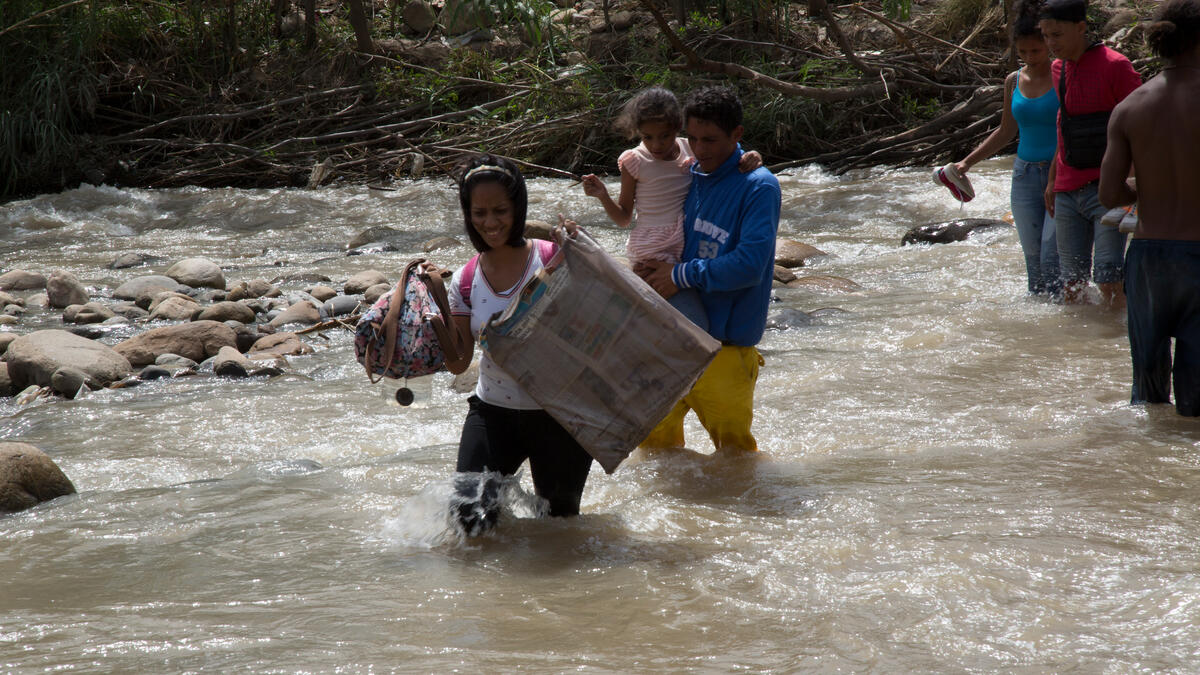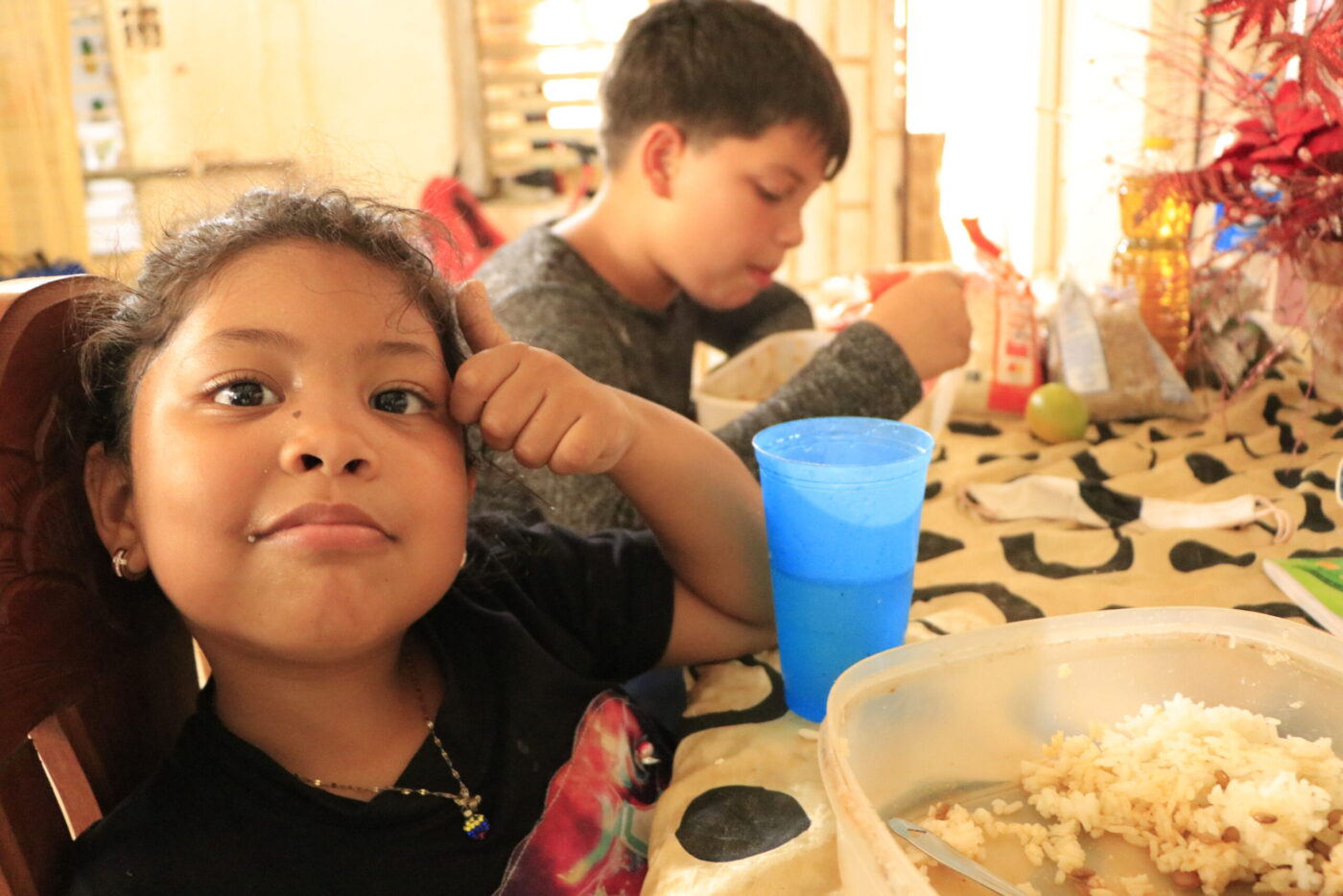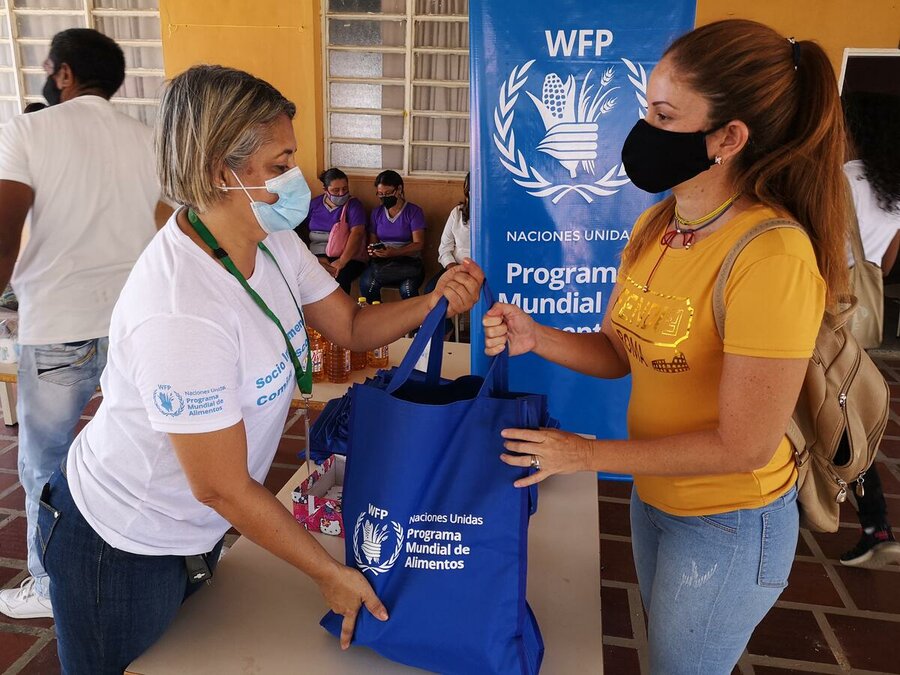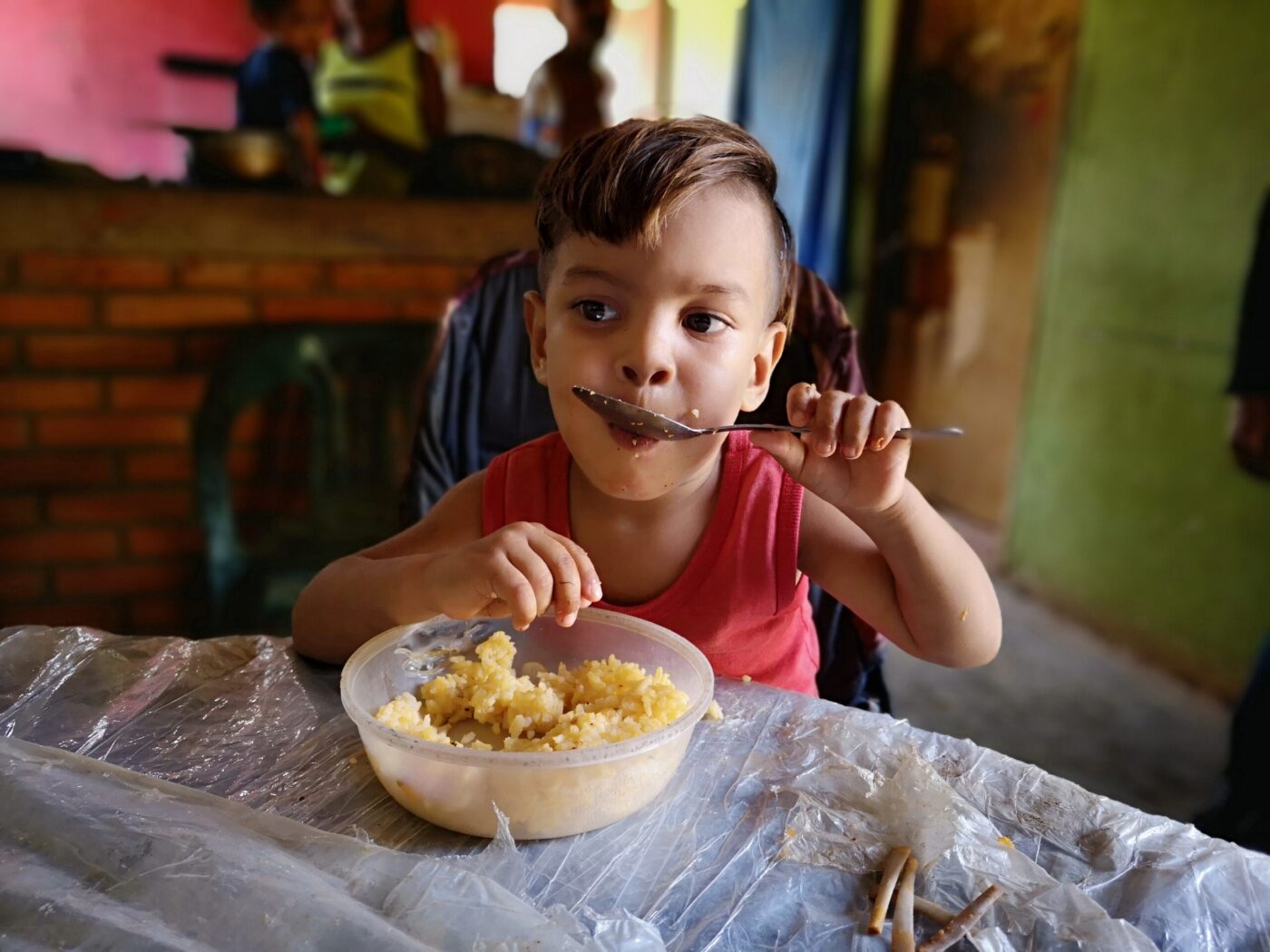
Venezuela
Unprecedented Migrant Crisis
Millions of Venezuelans have fled their homes and country due to loss of livelihoods and lack of food, medicine and other basic necessities. Since 2018, the majority of Venezuelan migrants have been women, children and elderly people who are migrating to reunite with family.
Today, 5.6 million Venezuelan refugees and migrants are in Latin America and the Caribbean.
in Colombia
in Ecuador
in Peru
WFP’s Work in Venezuela
See how the U.N. World Food Programme fights hunger and builds sustainability.

In July 2021, WFP began providing take-home meals to schoolchildren and staff with the goal of reaching 1.5M students by 2023.


WFP distributes emergency rations in the form of transportable, high-energy food kits at major migration checkpoints.


WFP provides migrants and returnees with food vouchers worth enough food for three months, which can be redeemed in local shops.


Since 2018, WFP has provided emergency food assistance to migrants, Colombian returnees and host communities.

Sadly, in most cases, women are the heads of the most vulnerable families. They have limited access to basic services or requirements – such as food – and face increased safety risks, such as assault and being forced into sex work.
WFP’s partnership with local authorities, civil society groups and national institutions is helping to keep women and children safe and provide them with the food they need.
Help save lives today
Give to help send lifesaving food to vulnerable people in Venezuela and other countries around the world.
News & Updates from Venezuela
Read the latest articles on hunger issues and WFP’s work in Venezuela.


